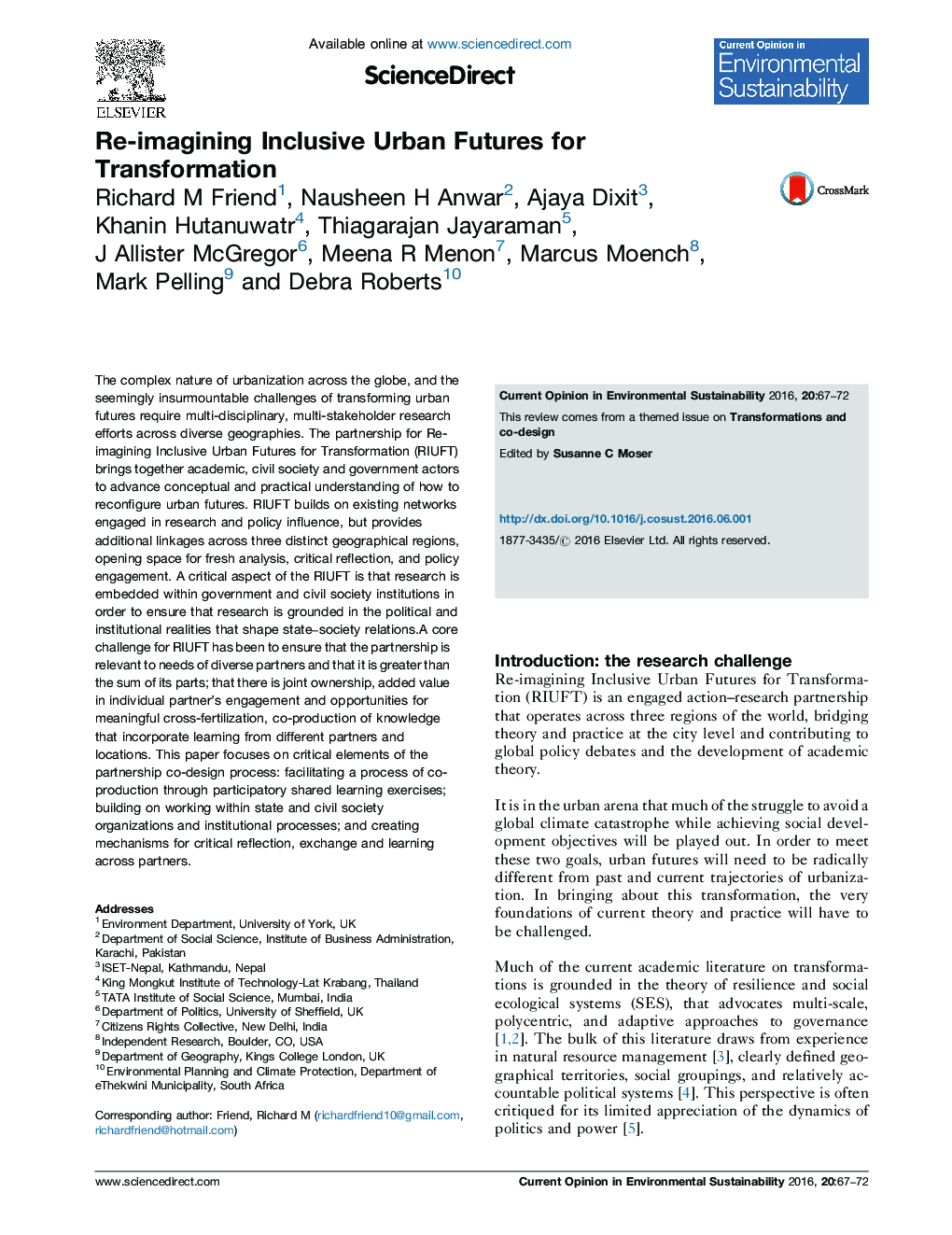| کد مقاله | کد نشریه | سال انتشار | مقاله انگلیسی | نسخه تمام متن |
|---|---|---|---|---|
| 1051308 | 1484919 | 2016 | 6 صفحه PDF | دانلود رایگان |
• Achieving urban transformations is first and foremost a challenge of governance.
• Research can influence change by creating evidence, policy arguments and opening dialogue space.
• Academia has a critical role to play in providing space and resources to envision alternative futures.
• Research needs to be grounded in state and non-state perspectives, within specific locations.
The complex nature of urbanization across the globe, and the seemingly insurmountable challenges of transforming urban futures require multi-disciplinary, multi-stakeholder research efforts across diverse geographies. The partnership for Re-imagining Inclusive Urban Futures for Transformation (RIUFT) brings together academic, civil society and government actors to advance conceptual and practical understanding of how to reconfigure urban futures. RIUFT builds on existing networks engaged in research and policy influence, but provides additional linkages across three distinct geographical regions, opening space for fresh analysis, critical reflection, and policy engagement. A critical aspect of the RIUFT is that research is embedded within government and civil society institutions in order to ensure that research is grounded in the political and institutional realities that shape state–society relations.A core challenge for RIUFT has been to ensure that the partnership is relevant to needs of diverse partners and that it is greater than the sum of its parts; that there is joint ownership, added value in individual partner's engagement and opportunities for meaningful cross-fertilization, co-production of knowledge that incorporate learning from different partners and locations. This paper focuses on critical elements of the partnership co-design process: facilitating a process of co-production through participatory shared learning exercises; building on working within state and civil society organizations and institutional processes; and creating mechanisms for critical reflection, exchange and learning across partners.
Journal: Current Opinion in Environmental Sustainability - Volume 20, June 2016, Pages 67–72
